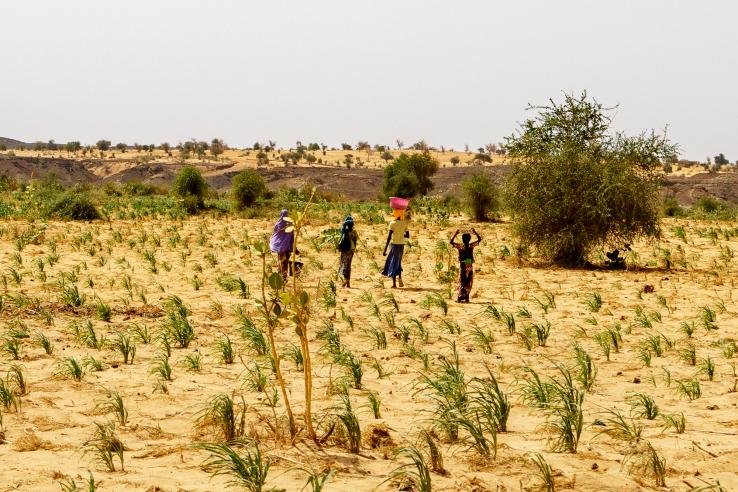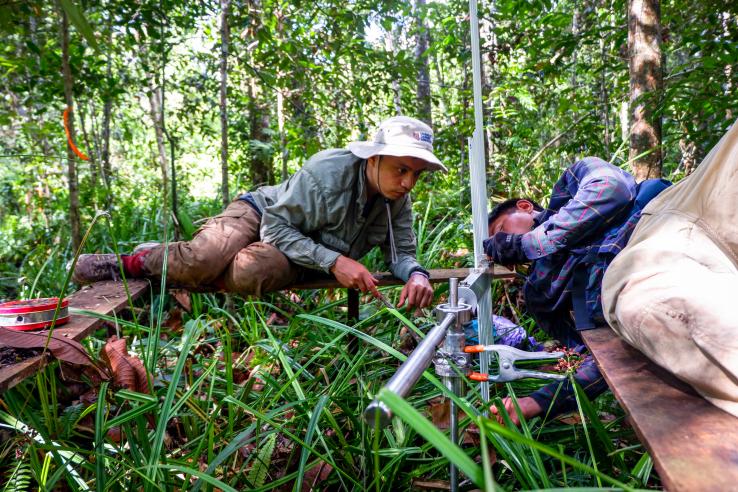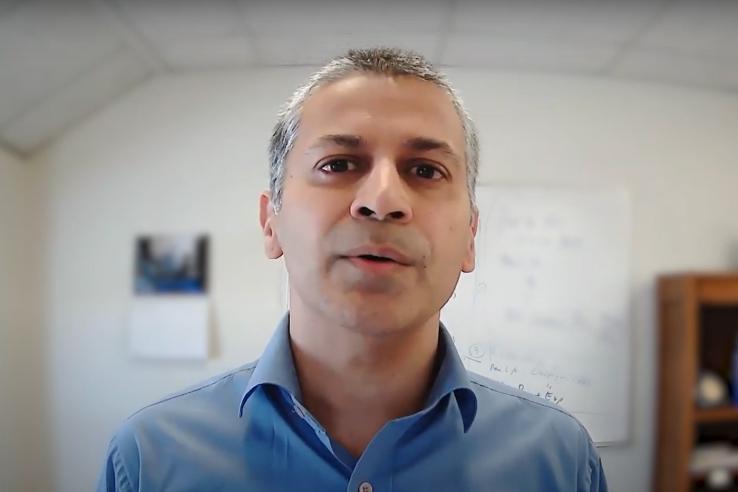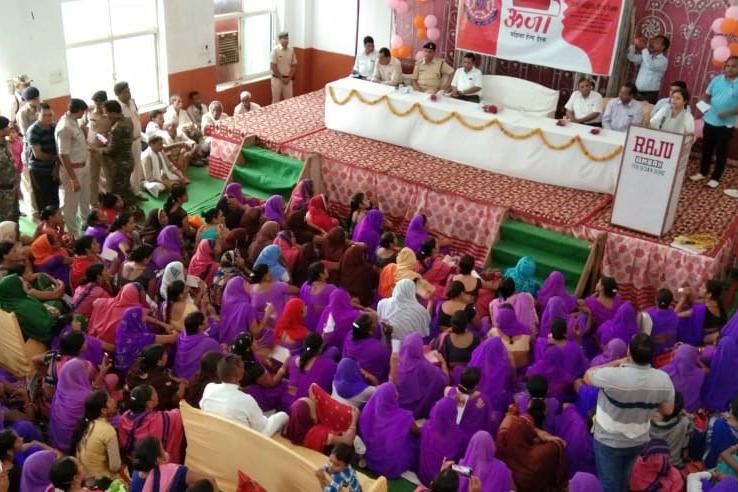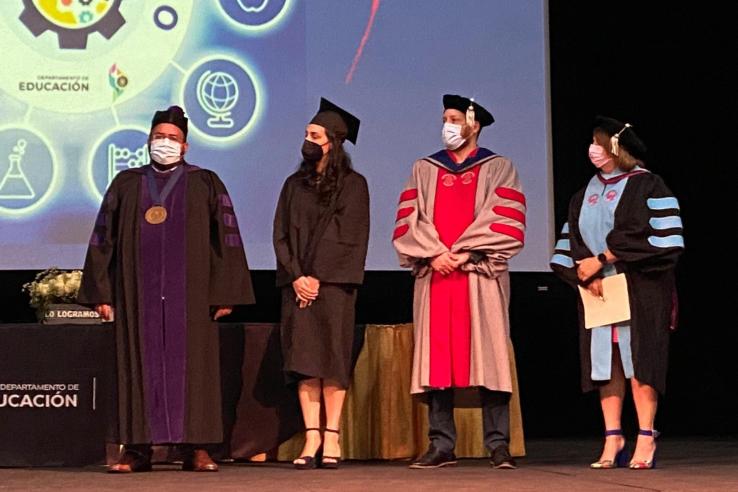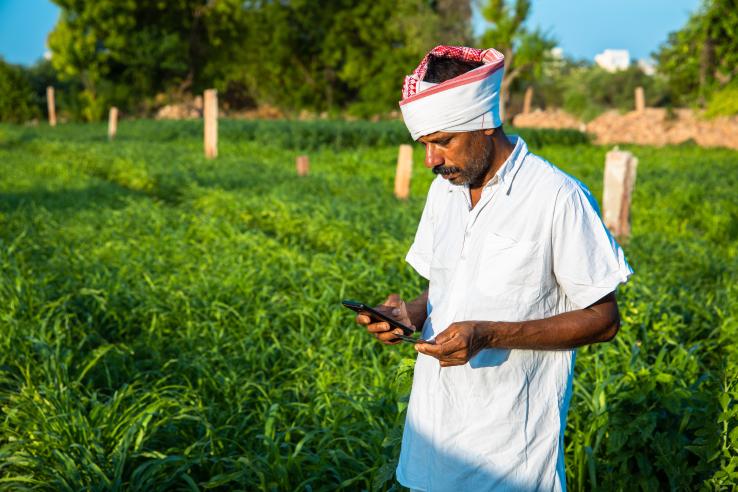Displaying 3391 - 3405 of 8335
Evaluation
In partnership with Concern Worldwide, researchers examined the relative effectiveness of traditional versus mobile cash transfers in Niger. Households who received electronic transfers had more diverse diets than those who received traditional cash transfers, in part due to time savings and shifts in women’s decision-making power within the household.
Evaluation
Together with the provincial government, researchers evaluated the impact of a performance-based incentive scheme on tax inspectors’ performance in Punjab, Pakistan. The incentive scheme allowed tax inspectors to choose their next posting location based on their past performance; specifically, how each inspector performed, relative to others, determined the order in which inspectors would choose their next posting.
Person
Arya Gaduh is an Associate Professor of Economics at the Sam M. Walton College of Business, University of Arkansas, Fayetteville. His published research revolves around the empirical microeconomics of development, with particular focuses on human/social capital and urban economics.
Person
Alain de Janvry is a Professor of Agricultural and Resource Economics at the University of California, Berkeley.
Blog
J-PAL's King Climate Action Initiative announced the results of its first competition aimed at identifying innovative solutions at the intersection of poverty and climate change, serving as a critical first step in building a longer playbook of evidence-based and cost-effective climate change...
Person
Elisabeth Sadoulet is a Professor of Agricultural and Resource Economics at UC Berkeley. Her research interests span agricultural technologies, microcredit, conservation, conditional cash transfers, and property rights. Sadoulet has conducted field research in sub-Saharan Africa, Latin America...
Person
Meredith Fowlie holds the Class of 1935 Endowed Chair in Energy at UC Berkeley. She is a Professor in the Agriculture and Resource Economics department, faculty Co-Director at the Energy Institute at Haas, an affiliated faculty of the Energy and Resources Group, and a Research Associate at the...
Person
Yamina is J-PAL's Morocco Employment Lab Project Manager, where she provides operational support to set up and grow the Lab’s organizational and financial management capabilities.
Blog
Researchers in the J-PAL network have conducted over 80 ongoing or completed randomized evaluations of social programs and policies across 20 European countries, with a particular focus on education and labor markets. J-PAL Europe has launched a summary of insights generated from this research.
Blog
J-PAL affiliate Sandip Sukhtankar shares learnings, policy insights, and scaling plans related to a large-scale evaluation of gender-sensitive police reforms in Madhya Pradesh, India, published in July 2022 in Science.
Blog
This post is the first in a two-part series to highlight both why and how to use the J-PAL Dataverse. The goal of this first post is to provide a user-friendly guide to access our data, and a starter menu of use cases of data from randomized control trials (RCTs) for students, researchers, teachers...
Blog
Sandip Sukhtankar is an associate professor of economics at the University of Virginia. He serves on the board of J-PAL’s Digital Identification and Finance Initiative in Africa (DigiFI Africa) and co-directs the Payments and Governance Research Program (PGRP) hosted at J-PAL South Asia. Sandip’s...
Blog
The research team behind a rigorous, long-term evaluation of a STEM program for high schoolers discusses their new working paper & key findings, including a significant increase in graduation rates for program participants.
Blog
J-PAL North America staff and researchers recently attended a graduation ceremony for school principals who participated in EDUGESPRO, a professional development program born out of a research partnership with the Puerto Rico Department of Education.
Blog
As the reach of digital agricultural services has grown rapidly within the last few years, building an evidence base on how these services should be designed, implemented, and scaled to best align with the priorities of small-scale producers is an important and timely issue—and one that J-PAL's...
